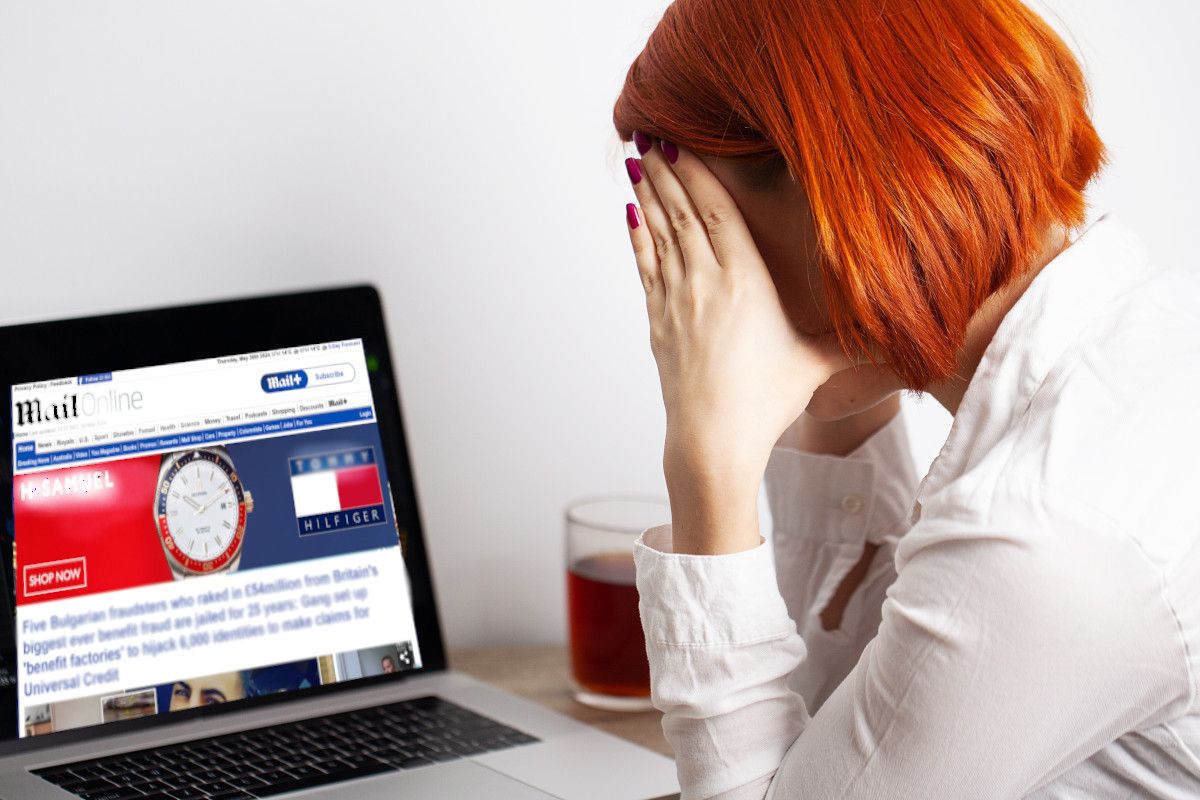Defamation in online newspaper

What to do if you are defamed in an online newspaper article
Imagine waking up to find your reputation in tatters, all because of an article published online. More and more people are finding themselves defamed by online newspapers, with false or damaging statements spreading quickly and widely. If you find yourself in this situation, what can you do to protect your name and seek justice? This guide will help you understand your options and the steps you can take when faced with defamation in an online newspaper.
What is an online newspaper
If you are defamed in an online newspaper article, before addressing the issue of defamation, it is essential to understand what an online newspaper actually is. An online newspaper is considered as digital version of a traditional newspaper, delivering news, articles, and opinions via the internet. These publications can range from well-known national newspapers to smaller, local outlets and even individual blogs that mimic traditional news formats. Online newspapers share several key characteristics: they publish content frequently, often daily, to keep readers informed about current events.
Established online newspapers typically adhere to journalistic standards and ethics, including fact-checking and editorial oversight. In the UK, some online newspapers are regulated by bodies like the Independent Press Standards Organisation (IPSO) or Impress, which ensure adherence to ethical standards. However, not all online publications are regulated, and some operate independently, making it harder to hold them accountable. The action you can take following defamation in an online newspaper will largely depend on whether the paper is regulated or not.
Journalistic exemption and defamation
Journalists often benefit from legal protections that recognise the critical role the press plays in society. These protections, known as the "journalistic exemption," can make it more challenging to prove defamation against media professionals. The underlying principle is to balance the need for free speech and open debate with the protection of individual reputations.
These are the key Aspects of the Journalistic Exception:
- Public Interest: The journalistic exception is rooted in the belief that the press serves the public interest by informing citizens, fostering open debate, and holding power to account. This role justifies certain protections to ensure that journalists can operate without undue fear of litigation.
- Qualified Privilege: Journalists have a "qualified privilege" when reporting on matters of public concern. This means that even if a statement is defamatory, it may be protected if it is made without malice and serves a legitimate public interest. For example, investigative journalism that exposes corruption or malpractice may be covered by this privilege.
- Responsible Journalism: To benefit from the journalistic exception, journalists must practice "responsible journalism." This involves adhering to ethical standards such as verifying information, providing a right of reply, and distinguishing between fact and opinion. The courts often assess whether the journalist took reasonable steps to ensure the accuracy of their reporting.
- Actual Malice Standard: In some cases, particularly involving public figures, the standard for proving defamation is higher. The claimant must show "actual malice"—that the journalist knew the statement was false or acted with reckless disregard for the truth. This higher threshold protects journalists from frivolous lawsuits that could stifle free speech.
Despite these protections, journalists are not above the law. They must still adhere to ethical standards and can face legal consequences for defamatory statements made with malice or reckless disregard for the truth. Ethical journalism involves fact-checking ensuring the accuracy of information before publication, balance and fairness, providing balanced coverage and giving subjects an opportunity to respond, transparency about sources and potential conflicts of interest and corrections and retractions by promptly correcting errors and issuing retractions when necessary.
Defamation by online bloggers and citizen journalists
The rise of blogging and citizen journalism blurs the lines between professional journalists and individuals who publish online. While bloggers do not automatically receive the same legal protections as traditional journalists, they can argue for similar exceptions if they adhere to journalistic standards and serve the public interest. However, individual bloggers are more vulnerable to defamation claims if they fail to meet these standards. This situation presents several challenges for someone who has been defamed online. First, it can be difficult to distinguish between a reputable online news source and a personal blog. Established newspapers and media outlets often follow strict editorial guidelines and are subject to regulatory bodies like the Independent Press Standards Organisation (IPSO) or Impress in the UK.
These organisations ensure that professional journalists adhere to ethical standards, such as verifying facts before publication and offering a right of reply to those being reported on. In contrast, individual bloggers might not follow these same rigorous standards. A blogger could publish defamatory content without the same level of scrutiny or fact-checking, making it easier for false or harmful information to spread. While bloggers can argue for journalistic exceptions if they follow ethical practices, many do not, leaving them more exposed to defamation claims.
For someone who has been defamed, this distinction matters. If the defamation comes from a regulated media outlet, there are established procedures to address the issue, such as filing a complaint with the relevant regulatory body or seeking a retraction and apology. However, when the defamation comes from an unregulated blog, the process becomes more complicated. The victim might have to take legal action directly against the blogger, which can be costly and time-consuming.
Furthermore, the internet's vast reach means that defamatory statements can spread rapidly and be difficult to contain. Even if a blogger removes the defamatory content, it might already have been shared widely, causing lasting damage to the victim's reputation. This widespread dissemination makes it challenging to fully rectify the harm done. See an exmaple of a defamation case against a blogger.
What legal steps can you take to remove defamation in an online article
Options when dealing with Journalists
If you have been defamed by an article in an online newspaper, there are several steps you can take, especially if the defamation comes from a regulated journalistic source. First, write to the editor of the publication and put them on notice about the defamatory content. If you have a reasonable case for defamation, this can be an effective first step. You don't need to prove defamation beyond a reasonable doubt. Editors will often consult their legal advisors, and if there is a reasonable chance the article is defamatory, the advisors might suggest removing or correcting the article.
Some tabloid editors, however, might ignore legal advice, hoping that the victim won't pursue the matter further due to the costs involved. In such cases, seeking help from a solicitor can strengthen your position and show that you are serious about addressing the issue. If the newspaper is being unreasonable, you should consider filing a complaint with the relevant regulatory body, such as the Independent Press Standards Organisation (IPSO) or Impress.
These organisations can investigate your complaint and take action if the publication is found to have breached ethical standards. If IPSO or other regulators cannot help, consider sending a cease and desist letter to the publication. Additionally, explore whether there are other breaches outside defamation law, such as breaches of your data or privacy. These issues are often easier to prove and therefore harder for the newspaper to defend. Here is an example of the way one of our client has successfully dealt with defamation by a newspaper journalist.
Options for Non-Journalistic Online Publications and Blogs
If the defamation comes from a non-journalistic online source or a blog, the process is different, as you do not have recourse to a regulatory body. In these cases, you should start by exploring any conflicts of interest or other unethical conduct by the poster or the editor of the blog.
Demonstrating that the individual or blog does not adhere to journalistic standards can be helpful. This can place them outside the realm of being considered journalists and make it easier to challenge the defamatory content. You can also contact the blog or website directly to request the removal or correction of the defamatory statement. If this does not work, consider seeking legal advice to explore further action, such as sending a formal cease and desist letter.
With non-journalists, you might have no alternative but to dispatch a defamation cease and desist letter against both the editor or proprietor and the poster. Taking these steps can help you address the defamation and work towards restoring your reputation. Read for example the case of one of our clients, a victim of crime who was defamed in a blog.
Legal advice for newspaper defamation
How to deal with online defamation can be a complex and daunting task. This is why it is crucial to seek legal advice from experienced professionals who understand the ins and outs of internet law. Our law firm has 25 years of experience in this field, making us well-equipped to handle your case effectively. We have extensive knowledge of the online landscape and are familiar with most common defaming blogs, websites, and online newspapers.
Our experience includes dealing with entities that merely pretend to be established newspapers but are actually run by agencies hired to defame individuals or businesses. These entities often operate under the guise of legitimate journalism, making it challenging to address the defamation without expert help. Our deep understanding of internet law and our familiarity with the tactics used by these deceptive organisations mean we can identify and counteract their strategies.
We can provide you with tailored advice and robust representation, ensuring that your rights are protected and that we take the most effective steps to restore your reputation. By seeking legal advice from Cohen Davis, you will benefit from our comprehensive experience and proven track record in handling online defamation cases. We will work diligently to ensure that defamatory content is removed and that you receive the justice and compensation you deserve. Our expertise allows us to navigate the complexities of internet law and provide you with the best possible outcome.

